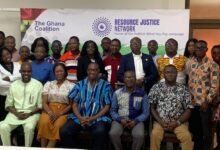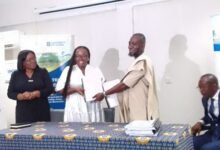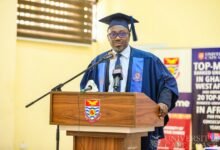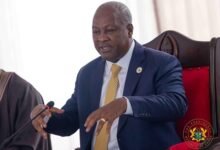
The Supreme Court (SC) yesterday quashed the ruling of the Ho High Court given on December 23, 2020, to pave the way for Mr John Peter Amewu, Member of Parliament (MP)-elect for Hohoe, to be part of the 8th Parliament, which comes into effect on midnight of today, January 6, 2021.
The court, speaking through Justice Yaw Apau, acknowledged that the issues before the Ho High Court relates to fundamental human rights of the people of Santrokofi, Akpafu, Lolobi and Likpe (SALL), but the orders given by the court were in the nature of election petition that could only be pursued under Article 99 of the 1992 Constitution and Section 16 of the PNDC Law 284.
It said, Mr Amewu presented himself to contest the Hohoe Constituency parliamentary election, that he was not an agent of the Electoral Commission (EC) and could not be held accountable for the ‘sins’ committed by the electoral body.
Article 99 of the Constitution, 1992 states: “The High Court shall have jurisdiction to hear and determine any question whether (a) a person has been validly elected as a Member of Parliament or the seat of a member has become vacant; or (b) has been validly elected as a Speaker of Parliament or, having been so elected, has vacated the office of the Speaker.”
On December 23, 2020, Justice George Buadi, presiding, ordered Mr Amewu, from holding himself as a MP-elect for the Hohoe constituency in the Volta Region.
The order was issued on the back of an ex-parte motion brought against Mr Amewu and four others by the people of SALL, who argued that they were denied the right to vote in the Hohoe Parliamentary election conducted on December 7, 2020.
In invoking the supervisory jurisdiction of the SC, the Attorney-General (A-G) asked for an order of Certiorari and prohibition to quash the proceedings of the Ho High Court and stop the trial judge, Justice Buadi from hearing the matter.
But, the SC declined the invitation to prohibit the trial judge from hearing the substantive matter, explaining that the High Court was clothed with jurisdiction to hear the human rights abuse of the interested parties.
Regarding the constitutionality of Constitutional Instrument (C.I) 128 which formed the crux of the interested parties case, the court held that, that issue was not properly before the court.
The C.I 128 is the instrument that placed SALL in the Oti Region, following the revocation of C.I 95.
Mr Tsatsu Tsikata, counsel for the interested parties had argued in court on Monday that the reliance on C.I 128 to determine where the people of SALL should vote was without any constitutional basis.
He contended that the instrument was unconstitutional because it was not gazetted on the day it was laid in Parliament as required by law.
Mr Tsikata told the judges that the High Court had jurisdiction to hear matters of violation of the fundamental human rights of his clients.
Mr Godred Yeboah Dame, a Deputy Attorney-General, suggested the annulment of the Buem parliamentary election in Oti Region, to enable the people of SALL to vote.
He previously told the court that the EC ought to allowed the affected persons to vote in the Buem Constituency.
Mr Dame argued that the people of Hohoe duly elected an MP to represent them in Parliament and should not be denied the right of representation in Parliament .
It was the case of the Deputy Attorney-General that in accordance with Article 47(2) of the Constitution, 1992, no constituency can fall within more than one region.
Responding to the submission of the Attorney-General, Mr Tsikata said the fact the A-G agreed that the people of SALL were wrongfully denied participation in the parliamentary election was an important admission.
Pix: Godwin Fosu







